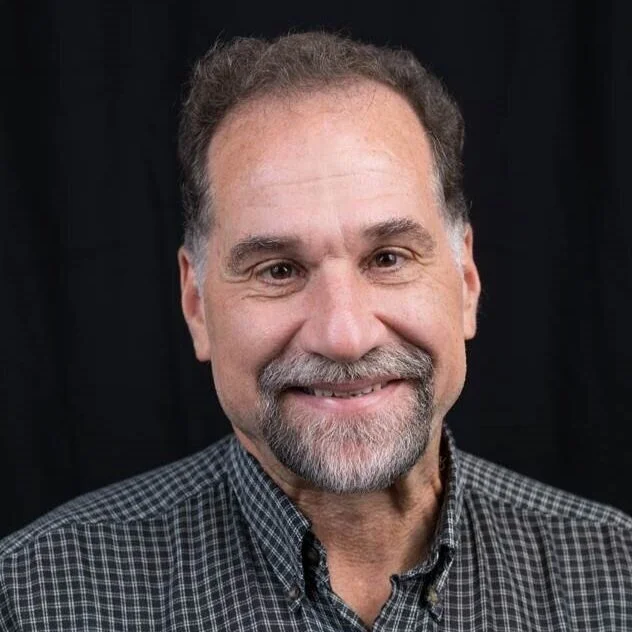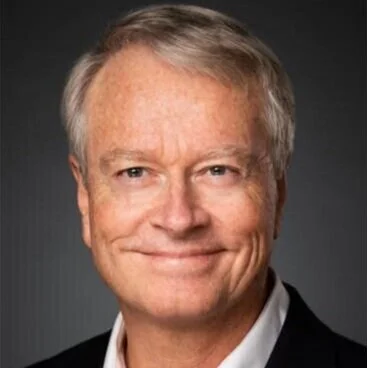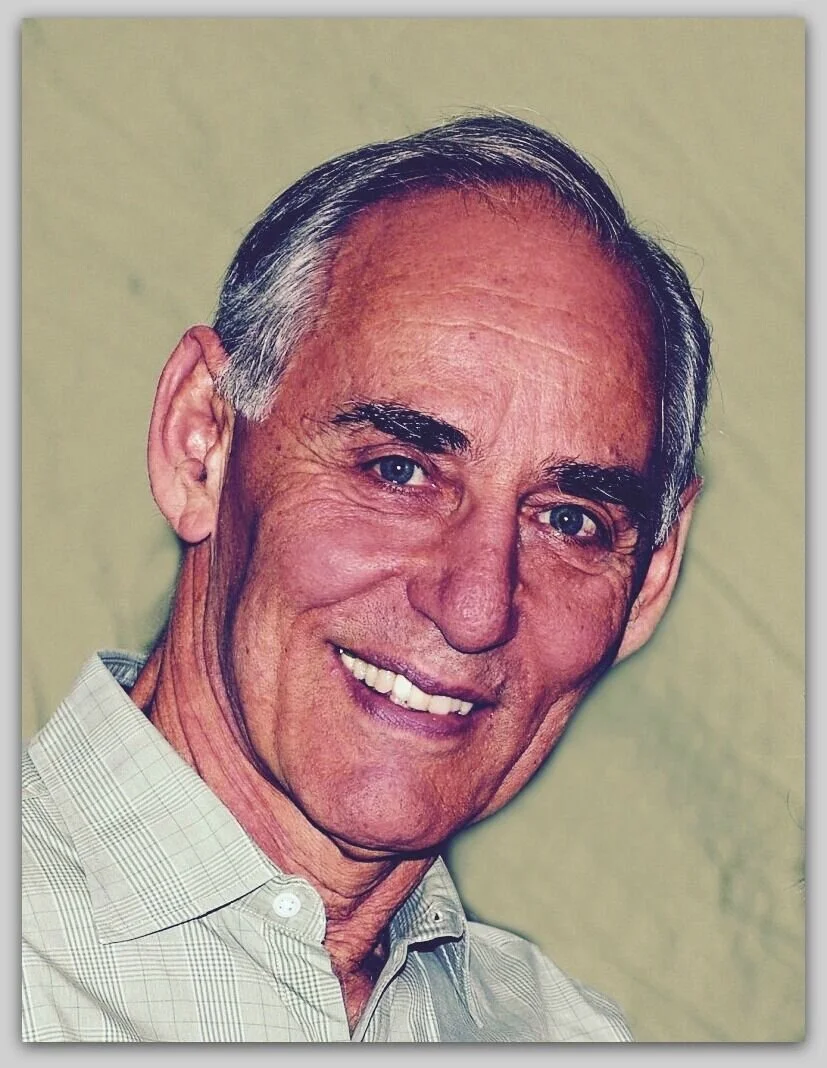"A Prayer for Peace, Reconciliation & Grace" with Michael Brodeur
This is part of series of episodes where I interview forward-thinking people from the conservative side of the political spectrum to facilitate cultural healing, explore new perspectives and demonstrate the power of compassionate conversation rooted in mutual human dignity.
Michael Brodeur is a minister, coach, CEO and proud follower of Jesus.. Michael was raised in the heart of 1960s counterculture in San francisco, was introduced to Jesus while hitchhiking, and later had his spiritual transformation on a Blackfoot Indian reservation in Montana. That said, Michael is not your typical minister and this is not your typical conversation. Michael is a bridge builder.
He is the author of Revival Culture: Preparing the Church for the Next Great Awakening.
Michael is the co-founder and CEO of Destiny Finder, an online personal discovery and development system that helps individuals identify their spiritual gifts and passions, and become the person God created them to be.
Michael is also the co-founder and CEO of Pastor’s Coach, an organization that supports churches with leadership development, membership engagement and the creation of dynamic spiritual cultures.
In this conversation we talk about Michaels journey from a life sex, drugs and rock & roll and the Summer of Love of San Francisco to becoming a follower of Jesus. We talk about what it means to be imperfect humans in an imperfect world and the power of forgiveness to heal our selves and others We talk about the implications of living in a secular pluralistic nation that’s struggling with ethical and other value-based decisions. And we talk about the importance of finding your purpose, calling or destiny in this life.
Michael Brodeur Resources
Michael’s Website: michaelbrodeur.com
Destiny Finder: destinyfinder.com
Pastor’s Coach: pastorscoach.com
Facebook: @michaelvbrodeur
Instagram: @michaelvbrodeur
Revival Culture by Michael Brodeur & Banning Liebscher
Michael Brodeur
Check out Duncan’s work as the Chief Transformation Officer at Spoke & Wheel:
Support Fractal Friends:
Watch this episode on You Tube:
Other Resources
Here are resources about things that came up in this conversation.
Biblical References
Discernment vs. Judgement
Michael talks about how there are two uses of the word “judgement” in the bible. Here are two articles explaining that distinction:
“Practicing Discernment: What Does the Bible say about Sound Judgment vs Being Judgmental?” by Dolores Smyth, Christianity.com
“Discernment vs. Judgement” by Dave Wernli (Identity in Wholeness
Here are some biblical passages that Michael discusses in this episode:
Sermon on the Mount
Matthew, Chapter 5, Bible (New International Version)
Introduction to the Sermon on the Mount
5 Now when Jesus saw the crowds, he went up on a mountainside and sat down. His disciples came to him, 2 and he began to teach them.
The Beatitudes
He said:
3 “Blessed are the poor in spirit,
for theirs is the kingdom of heaven.
4 Blessed are those who mourn,
for they will be comforted.
5 Blessed are the meek,
for they will inherit the earth.
6 Blessed are those who hunger and thirst for righteousness,
for they will be filled.
7 Blessed are the merciful,
for they will be shown mercy.
8 Blessed are the pure in heart,
for they will see God.
9 Blessed are the peacemakers,
for they will be called children of God.
10 Blessed are those who are persecuted because of righteousness,
for theirs is the kingdom of heaven.11 “Blessed are you when people insult you, persecute you and falsely say all kinds of evil against you because of me. 12 Rejoice and be glad, because great is your reward in heaven, for in the same way they persecuted the prophets who were before you.
Paul’s Letter to the Romans
Romans 13, Bible (New International Version)
Submission to Governing Authorities
13 Let everyone be subject to the governing authorities, for there is no authority except that which God has established. The authorities that exist have been established by God. 2 Consequently, whoever rebels against the authority is rebelling against what God has instituted, and those who do so will bring judgment on themselves. 3 For rulers hold no terror for those who do right, but for those who do wrong. Do you want to be free from fear of the one in authority? Then do what is right and you will be commended. 4 For the one in authority is God’s servant for your good. But if you do wrong, be afraid, for rulers do not bear the sword for no reason. They are God’s servants, agents of wrath to bring punishment on the wrongdoer. 5 Therefore, it is necessary to submit to the authorities, not only because of possible punishment but also as a matter of conscience.
6 This is also why you pay taxes, for the authorities are God’s servants, who give their full time to governing. 7 Give to everyone what you owe them: If you owe taxes, pay taxes; if revenue, then revenue; if respect, then respect; if honor, then honor.
Psalm 23, Verse 4, Bible (International Standard Version)
“Even when I walk through a valley of deep darkness, I will not be afraid because you are with me.”
A.A. Big Book
In response to Psalm 23 I mention this section from Chapter 5 of the The Big Book of Alcoholics Anonymous:
“The first requirement is that we be convinced that any life run on self-will can hardly be a success. On that basis we are almost always in collision with something or somebody, even though our motives are good. Most people try to live by self propulsion. Each person is like an actor who wants to run the whole show; is forever trying to arrange the lights, the ballet, the scenery, and the rest of the players in his own way. If his arrangements would only stay put, if only people would do as he wished the show would be great. Everybody, including himself, would be pleased. Life would be wonderful. In trying to make these arrangements our actor may sometimes be quite virtuous. He may be kind, considerate, patient, generous, even modest and self sacrificing. On the other hand, he may be mean, egotistical, selfish and dishonest. But as with most humans he is more likely to have varied traits.
“What usually happens? The show doesn’t’ come off very well. He begins to think life doesn’t’ treat him right. He decides to exert himself more. He becomes on the next occasion, still more demanding or gracious, as the case may be. Still the play does not suit him. Admitting he is more at fault, he is sure that other people are more to blame. He becomes angry, indignant, self-pitying. What is his basic trouble? Is he not a self-seeker even when trying to be kind? Is he not a victim of the delusion that he can wrest satisfaction and happiness out of this world if he only manages it well? Is it not evident to the rest of the players that these are the things he wants? And do not his actions make each of them wish to retaliate, snatching all they can get out of the show? Is he not, even in his best moments a producer of confusion rather than harmony?
“Our actor is self-centered – ego-centric as people like to cal it nowadays. He is like the retired businessman… complaining of the sad state of the nation; the minister who sighs over the sins of the {world}, politicians and reformers who are sure all would be Utopia is the rest of the world would only behave… Whatever our protestations, are not most of us concerned with ourselves, our resentments, or our self-pity?
“Selfishness – self-centeredness! That, we think is the root of our troubles. Driven by a hundred forms of fear, self-delusion, self-seeking, and self-pity we step on the toes of our fellows and they retaliate. Sometimes they hurt us, seemingly without provocation, but we invariably find that at some time in the past we have made decisions based on self which later placed us in a position to be hurt.
“So our troubles, we think, are basically of our own making. The arise out of ourselves, and {we are} an extreme example of self-will run riot, though {we} usually {don’t} think so. Above everything else we… must be rid of selfishness. We must or it kills us! God makes that possible. And there often seems no way of entirely getting rid of self without His aid. Many of us had moral and philosophical convictions galore, but we could not live up to them even though we would have liked to. Neither could we reduce our self-centeredness much by wishing or trying on our own power. We had to have God’s help.
“This is the how and why of it. First of all, we had to quit playing God. It didn’t work. Next we decided that hereafter in this drama of life, God was going to be our director. He is the Principal; we are His agents. He is Father and we are His children. Most good ideas are simple, and this concept was the keystone of the new and triumphant arch through which we passed to freedom.”
(pps 60-62, The Big Book of Alcoholics Anonymous, Alcoholics World Services, NYC, NY, 1939.)
The Forces, Illusions and Perceptions that Divide Us (and the U.S.)
Humor and Heresy
Graham Hancock, the Gnostics & the Demiurge
During the episode Michael talks about there being an evil spiritual force that is prompting our division and hatred. It reminded me of how Graham Hancock talked about the Gnostic’s understanding of the Demiurge, a selfish demon disguised as God. Warning: Hancock himself explains that these ideas are “very heretical.”
Jimmy Fallon, Presidential Debates & Putin’s Glee
We talk about the dysfunctional first presidential debate between President Donald Trump and Vice-President Joe Biden as a powerful manifestation of the division in our country. Jimmy Fallon makes the joke about how Vladmir Putin was the only one who enjoyed the chaos of the debate at 2:30. “Yes. Yesssssssss.”
Totalitarian Agriculture
I mention in this episode the idea of “Totalitarian Agriculture” from Daniel Quinn, author of Ishmael, Story of B and Beyond Civilization. Totalitarian Agriculture is the dangerous and unnatural concept of civilization that otherness should be completely dominated and obliterated.
Here he explains the idea in this short video clip: “Daniel Quinn on Totalitarian Agriculture”
Perception vs. Reality of Polarization
We mention multiple times in this episode that we perceive that we are more divided than we really are. Here is the data to back that up.
The Perception Gap
More in Common is an organization that “works on both short and longer term initiatives to address the underlying drivers of fracturing and polarization, and build more united, resilient and inclusive societies.” They created The Perception Gap, a study explores how Americans tend to have a distorted understanding of people on the other side of the aisle, what causes it, and why it matters.
Beyond Conflict
For 27 years, Beyond Conflict has created powerful and innovative frameworks to open pathways for progress in peace talks, transitions to democracy, and national reconciliation in the aftermath of division and violence in over 75 countries.
The Following graphics are from the powerful report by Beyond Conflict called ”America’s Divided Mind: Understanding the Psychology That Drives Us Apart.” It offers, “new insights from brain and behavioral science explain how polarization is fueled by Americans’ misperceptions about each other. Learn more about the psychology that drives us apart, and how we can start to reverse it.”
(Download the PDF here.)
Transcending Polarization and Healing the Divide
Convergent Facilitation
It’s based on one simple experience: that people come together at the level of their underlying principles, needs, aspirations, and dreams, not at the level of their surface positions.
Convergent Facilitation is a highly efficient decision-making process developed by Miki Kashtan from the principles of Nonviolent Communication. It enables you to look beneath the surface and find the essence of what’s important to different stakeholders, and bring it together into one set of principles that lead to proposals and ultimately decisions. As a result, it readily produces solutions and decisions that everyone can embrace.
This method is uniquely effective, because it:
Taps into a group’s shared purpose, and leads to decisions that everyone truly supports – without sacrificing productivity, efficiency, and forward momentum.
Is very versatile: it may be used for fast emergency responses, for breaking through bottlenecks, or collaborating throughout the life cycle of a long-term project.
Gives you tools to address power differences to increase the chances that everyone at the table can offer their needs, ideas, and concerns and speak frankly about what really matters to them. It even works with highly polarized groups, like the longtime political enemies who used Convergent Facilitation to pass landmark legislation in Minnesota.
Trauma Healing Resources
I mention the Cycles of violence models from STAR in the episode (below). I also recommend this collection of information from the Democracy, Politics and Conflict Engagement Initiative: Trauma-Informed Conflict Engagement
STAR: Strategies for Trauma Awareness & Resilience
From the Center for Justice and Peacebuilding at Eastern Mennonite University is a framework that integrates material from: trauma and resilience studies; restorative justice; conflict transformation; human security and spirituality.B
Music
“Amazing Grace” performed by Kevin MacLeod and written by John Newton
This version is is licensed under a Creative Commons Attribution License.
John Newton
John Newton (b. London, England, 1725; d. London, 1807) was born into a Christian home, but his godly mother died when he was seven, and he joined his father at sea when he was eleven. His licentious and tumultuous sailing life included a flogging for attempted desertion from the Royal Navy and captivity by a slave trader in West Africa. After his escape he himself became the captain of a slave ship. Several factors contributed to Newton's conversion: a near-drowning in 1748, the piety of his friend Mary Catlett, (whom he married in 1750), and his reading of Thomas à Kempis' Imitation of Christ. In 1754 he gave up the slave trade and, in association with William Wilberforce, eventually became an ardent abolitionist. (Source: Hymnary.org)
“Amazing Grace” Lyrics
Amazing grace! how sweet the sound
That saved a wretch like me.
I once was lost, but now am found,
Was blind but now I see.Twas grace that taught my heart to fear,
And grace my fears relieved.
How precious did that grace appear
The hour I first believed.Through many dangers, toils and snares
I have already come.
Tis grace hath brought me safe thus far
and grace will lead me home.When we’ve been here ten thousand years
bright shining as the sun,
We’ve no less days to sing God’s praise
than when we’d first begun.
Here is another version of the song by a Fractal Friends favorite: The Snake Charmer ft. Barcelona Pipe Band:























